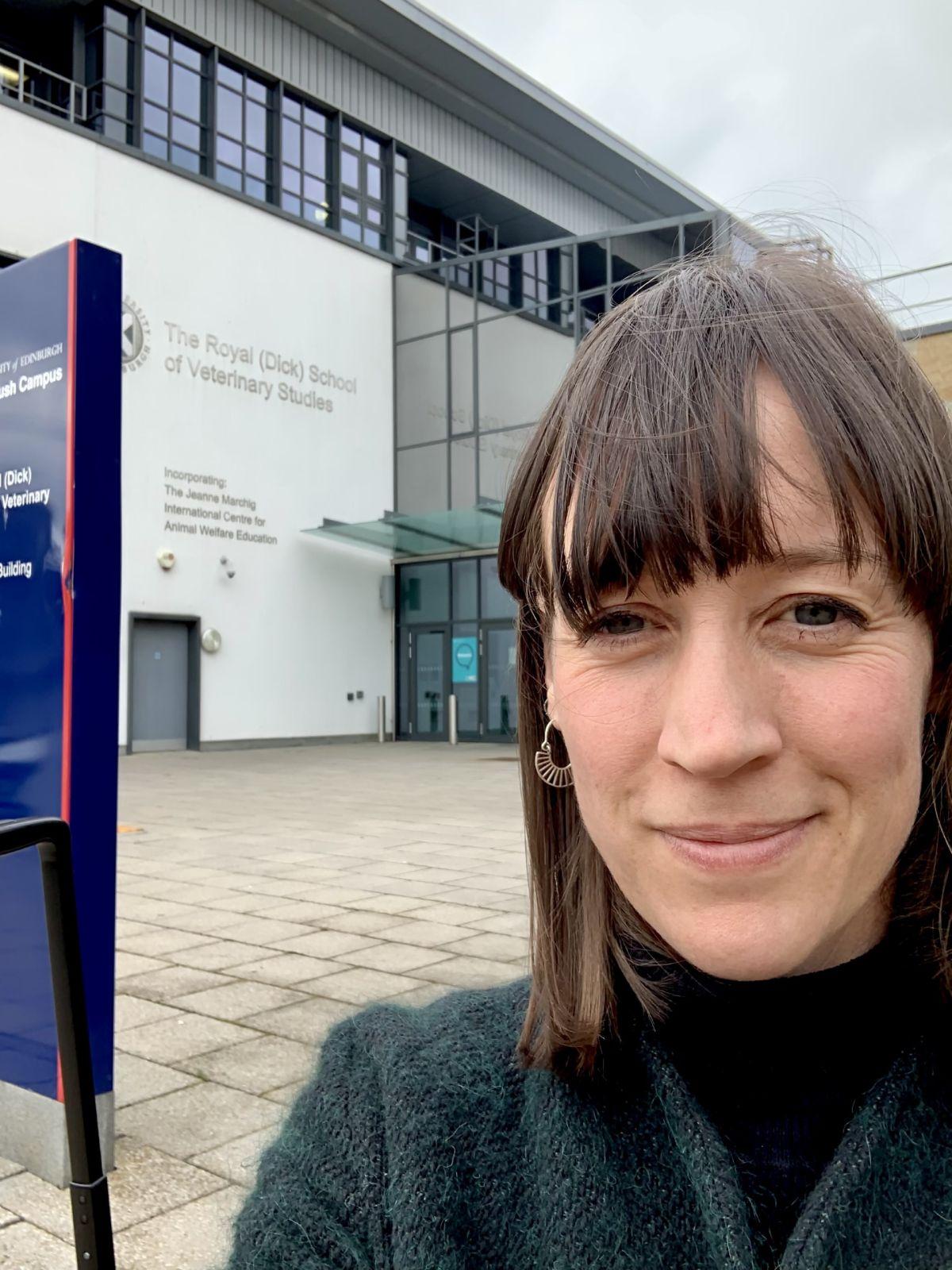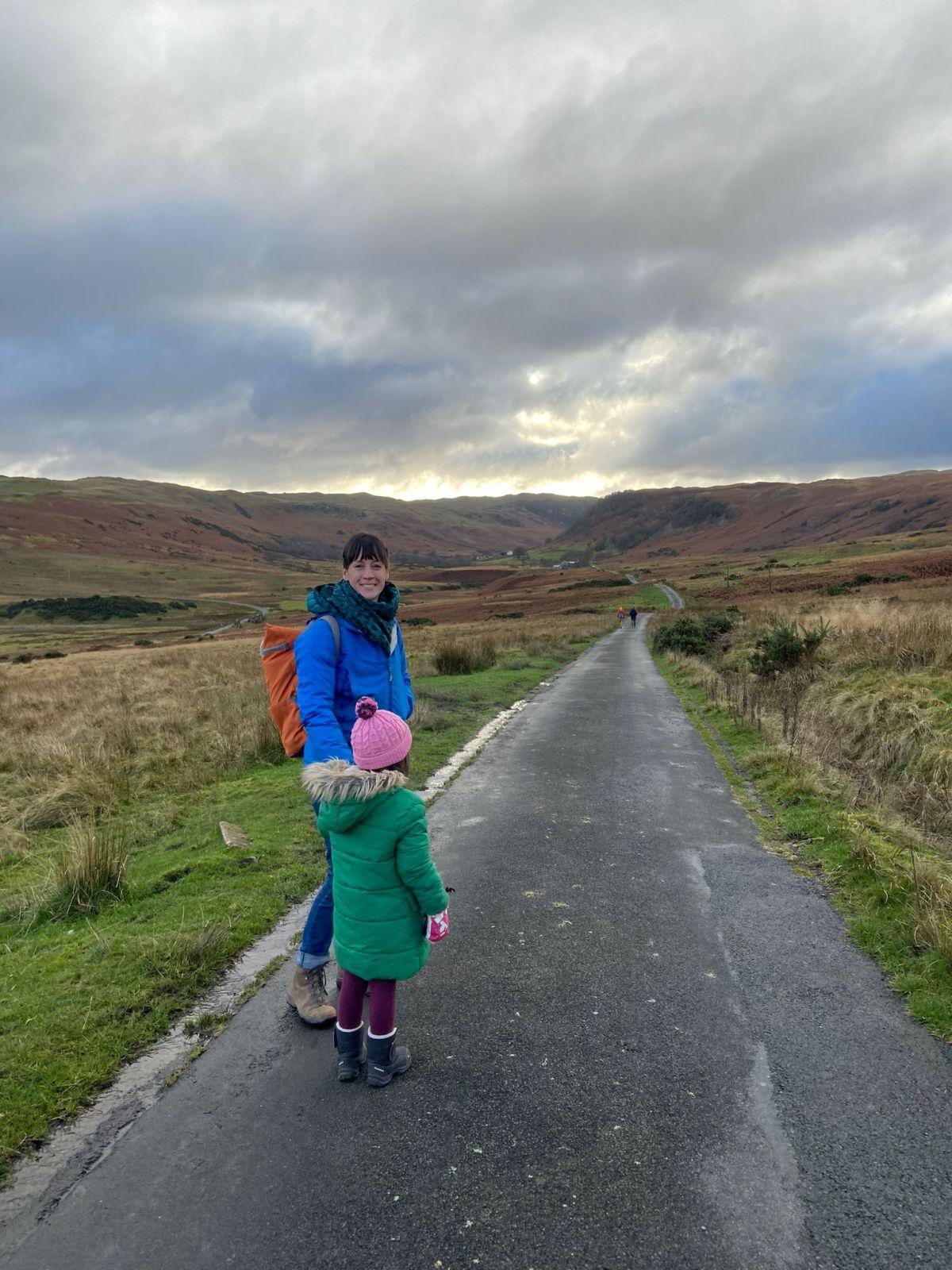Say Hello to Laura Higham, Founder and Director of Vet Sustain
Laura wears many hats, currently studying for her PhD at the University of Edinburgh, alongside working as a veterinary consultant in sustainable agriculture for FAI farms. Laura founded Vet Sustain in 2019 and is one of our trusted Directors. She has been integral to the establishment and growth of Vet Sustain and was awarded the RCVS Inspiration Award in 2023 for her sustainability work, something we at Vet Sustain are very proud of! Find out more about Laura in her interview here.
Vet Sustain
Hi Laura! Please introduce yourself to us!
My name is Laura Higham and I am the founder and a director of Vet Sustain, a veterinary consultant in sustainable agriculture at FAI Farms, and a PhD student at the University of Edinburgh.
What is your current role and professional interests?
My day job involves working as a part-time veterinary consultant at FAI Farms, supporting global food businesses to build sustainable and regenerative food systems for animals, people, and the planet. Our work includes advising businesses on supply chain policies and programmes, collecting and reporting outcome measure data from global farmed animal supply chains, and delivering e-learning. Alongside this I am studying for a PhD at the University of Edinburgh, looking at how we can integrate animal welfare and antibiotic use principles into the sustainability agenda – these are currently neglected sustainability concerns and are frequent trade-offs in the pursuit of other pressing challenges. As vets, I feel that animal welfare and antimicrobial stewardship could be our first ports-of-call for driving sustainability. Vet Sustain is my evening volunteer job, which starts when our young kids have been put to bed!
What does a typical day look like for you?
I am lucky to work flexibly from home for all three of my roles, and I am based on the outskirts of Sheffield. After the school and nursery run, I am usually at my desk 4 days a week, but with frequent travel to Edinburgh to meet my PhD supervisors, and around the UK to meet the FAI team during our quarterly away days. A recent team trip took us to Knepp rewilding estate to see the beavers and storks in action! At home, I am usually immersed in either writing policy or reports for our FAI clients, analysing data for my PhD, writing papers for publication, or meeting the FAI team or my PhD supervisors on Team calls. My Vet Sustain work usually involves catching up with our lovely team members Ellie and Hannah, or our amazing director group during our 6-weekly meetings. As a solitary home worker, regular online calls are so important to keep me connected to colleagues and our wider programmes, and taking our terrier Eric for a walk every lunchtime with a food/farming podcast helps me to stay awake and energised in the afternoon!

What is your favourite part of your job?
Because my work is project-based, the highs come at the end of long-term projects when I feel I’ve delivered a quality outcome. That might be a paper accepted for publication, or a policy that is well received by a client and contributes to the animal welfare agenda in a large supply chain. Calls with the team are fun too - at FAI we start every meeting with an informal check-in involving a random question for everyone to answer, which definitely helps you to get to know your team mates!
What is the most challenging part?
By far the hardest part is the massive juggle it takes to be a working parent. I don’t think we talk about this enough, and as a non-practicing vet I know I have it so much easier than our in-practice colleagues. But when I sit down at my desk in the morning, I sometimes feel I’ve already worked a full day. My day comes to a hard stop at 5pm (at the very latest) for pick-up time, and is often interrupted early for child illnesses, regardless of the work deadlines and stresses I have on that day. It’s hard, and there is a lot of guilt to cope with on both sides of the work-parenting coin! I still haven’t found peace with all this yet!
The other challenge I find is not being outdoors or around animals enough with my home-based, desk-based role. I really miss that aspect of being in practice, and it’s something I’ll be addressing in the months to come. We have just moved to a smallholding, so the plan is to be outdoors much more, with some animals of our own, which is so exciting!
Do you have any tips for achieving a good work-life balance?
My main strategy is strictly reserving time for our family every week. I am off with my 2-year-old son on Fridays, so Friday to Sunday I am strictly out-of-office. Not everyone gets the luxury of this sort of time off, so I am lucky, but it means I can work hard and in the evenings Monday to Thursday, knowing that I get to put my feet up later in the week! I throw myself into the things I love at the weekend, which these days are very low-key and family oriented: Dog walks to a cafe, baking and cooking, gardening, the odd run or wild swim…you won’t find many extreme sports here, but I do love being outside!

How do veterinary professionals currently help to drive sustainability?
Veterinary professionals are doing so much in the sustainability space, and it’s been incredible to see it being embraced in all corners of our professions. I don’t think there are many professions working as closely to all three of the One Health domains (people, animals, and the environment), as we do. Leveraging our unique understanding in all spheres of influence is our super power – at individual and household levels, in our workplaces, with clients and in our communities, at profession level, and within politics and global institutions. I’m proud to be a part of a sector with such a wide reach.
What do you feel are the major opportunities to drive sustainability in the veterinary sector?
Ensuring that decisions are informed by all three of the One Health domains is key. Society is so anthropocentric, and I think our key role as veterinary professionals can be opening the difficult dialogue – amongst ourselves firstly, then more widely – about the many unsustainable ways in which animals and the natural world are being utilised to fulfil human demands. Many of those ‘norms’ are increasingly unacceptable to us and to society, and I feel we are uniquely placed to help forge a path towards a more sustainable and regenerative future for human-animal relations. We’re already doing this on many fronts, but an overarching roadmap to tackling these issues together would be so helpful. Our Veterinary Sustainability Goals create a useful starting point, and we’ll hopefully be building on this in the months to come.
What are your top tips for veterinary professionals wishing to take the first steps to drive sustainability in their roles?
If you’re keen to get started with sustainability projects in the workplace, band together with some interested colleagues for support, and arm yourself with Vet Sustain’s Veterinary Sustainability Goals to help plan your projects. Our goals map the sustainability topics that veterinary professionals can influence. For example, starting with plastic reduction or recycling is a fantastic and very common entry point, but that is not the end of the sustainability story, and some of your team may find conducting an animal welfare audit, or arranging a series of staff wellbeing walks more rewarding.
Start with the easy wins and see your work bearing fruit, before tackling more and bigger issues. It is so satisfying to see the results of actionable changes. And what I didn’t always appreciate as a vet, is that our qualifications and experience can lend themselves to many sustainability-centred jobs. So, if you’re passionate about the subject, or an aspect of sustainability, you can find yourself in a very specialised and sought-after niche. Further qualifications help, as does practical experience delivering sustainability projects.
If you could wave a magic wand and make one improvement to drive the sustainability impact of the veterinary profession, what would it be?
I would modify our professional oath to incorporate not only the animals under our care, but the animals beyond our care, too. Viewing wildlife and nature as a critical stakeholder in all veterinary decision-making could help us to enact a truly One Health approach. We must ensure the welfare of the animals we care for directly - that must always be a priority, but there are unintended consequences of solely pursuing anthropocentric, business-as-usual objectives. We’re already seeing more ecological approaches in many areas of veterinary care, and I think we can carve out a better future for everyone, by kindly and courageously challenging the status quo within our own operations and in the sectors we influence.